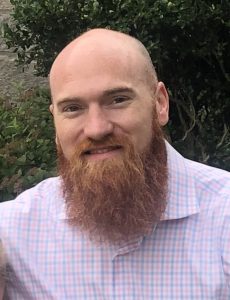
Read the following interview by Osher Program Coordinator, Emma Owings, with Dr. Joseph Rosansky, new Harvard Medical School Post Doctoral Integrative Medicine Fellow. Dr. Rosansky’s research focuses on mind-body treatments for addictive disorders and substance abuse.
Q: What is your research area of focus?
JR: I am interested in developing and evaluating mind-body treatments for addictive disorders and, more specifically, mindfulness-based treatments for substance use. Over the past two years, I have been assisting with an RCT evaluating a live-online mindfulness-based group therapy for individuals receiving buprenorphine treatment for opioid use disorder. During my T32 fellowship, I am planning to build on this experience by developing a brief, mindfulness-based intervention to help people reduce their alcohol consumption.
The vast majority of evidence-based interventions for alcohol use disorder (AUD) currently available to clinicians were developed with abstinence-based goals in mind. However, recent literature reviews have found that, for many individuals with AUD, non-abstinence goals are achievable and sustainable, and many clinicians are open to helping their clients pursue such goals. Furthermore, rates of alcohol consumption increased during the pandemic, and evidence suggests that this increase was driven, in part, by individuals using alcohol to manage stress and anxiety. I believe that mindfulness training is particularly well-suited to help individuals with mild or emerging alcohol use disorders, especially those who drink to cope with uncomfortable thoughts or feelings, reduce their consumption. To that end, I hope to develop a brief, group-based mindfulness intervention that can be disseminated in primary care settings.
Q: What led you to your interest in integrative medicine?
JR: Throughout my education and training I have repeatedly found myself noticing a false dichotomy established between mind and body. As an undergraduate neuroscience major, the connection between mind and body seemed so clear – the mind (brain) is part of the body and communicates with and influences every other organ system in the body! While my view of what “the mind” is has evolved in many ways since that time, I remain convinced that cognitively and theoretically isolating the two constructs is both inaccurate and, if not harmful, limiting.
When discussing my interest in integrative medicine, I would also be remiss to omit my own personal history with mindfulness practice. As a high school student, I was fascinated by Buddhist traditions and teachings. During that time, I completed a research project in which I visited monasteries and interviewed monks from each of the three main schools of Buddhism. I learned the basics of mindfulness meditation while working on that project and, during college, I began to develop my own personal practice. I have maintained a personal mindfulness practice since that time and noticed several beneficial mental and physical effects from it.
Q: What currently motivates your work?
JR: I am motivated by human suffering. While I acknowledge that pain is a natural and unavoidable part of life, I do not believe that suffering is mandatory. I became a clinical psychologist to help people relieve their suffering by finding more effective and personally meaningful ways to live in a world that is filled with mental, physical, and spiritual pain. The field of addiction psychology has always been especially meaningful to me, both because of the ways addiction has impacted my personal life and because addictive behaviors are so often maladaptive coping strategies developed to manage pain.
Q: Have you encountered any surprising results or challenges while pursuing your research?
JR: One of the things that has surprised me most during my journey toward becoming a research scientist has been the importance of developing strong communication skills. I always imagined that science was all about investigating the evidence. However, during my graduate and postgraduate training, I have found that effectively communicating the evidence and what you think it means is at least equally important! This became evident to me when I received the reviewers’ comments from the first manuscript I ever submitted to a scientific journal. I read over the comments, looked at my advisor, and complained, “They have no idea what they are talking about.” After pointing out all the errors they made in their reviews and stating that they must not have read the paper closely, my advisor suggested that many of those errors were my fault! He explained that it is my responsibility to ensure that the reader receives and understands the information I am trying to communicate. While I can still complain about a variety of aspects of the peer-review process, learning the importance of strong written communication and working to improve my writing has been a key part of my training.
Q: What impact do you hope to see from your work over the next 3-5 years?
JR: Within the next five years, I hope to have developed and tested an effective, brief mindfulness-based treatment for reducing alcohol consumption. I hope this treatment will be implemented in primary care settings, where it will help individuals improve their mental and physical health by taking a more mindful approach to their alcohol use. I am also interested in exploring other mind-body approaches for reducing alcohol use (e.g., wearable devices, martial arts training and/or exercise, dietary changes, medications, etc.) and hope to be incorporating additional non-mindfulness-based interventions into my work within the next five years.







